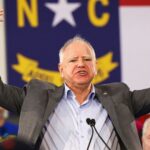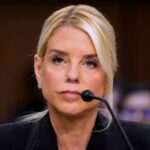Former federal prosecutor, now CNN senior legal analyst Elie Honig tore into both special counsel Jack Smith and federal Judge Tanya Chutkan for breaking all norms to unseal a court filing in the 2020 election interference cast against Donald Trump just as voters are going to the polls.
The 165-page brief contains “evidence” Smith plans to present, if the case ever goes to trial. So that’s a headline Smith clearly wanted to get to the media.
“The larger, if less obvious, headline is that Smith has essentially abandoned any pretense; he’ll bend any rule, switch up on any practice — so long as he gets to chip away at Trump’s electoral prospects. At this point, there’s simply no defending Smith’s conduct on any sort of principled or institutional basis,” Honig wrote in article for New York Magazine’s Intelligencer, titled “Jack Smith’s October Cheap Shot,” published Thursday.
He explained prosecutors do not make their evidence public before the trial begins, because our legal system is structured to protect the defendant, including the presumption of innocence. Making prosecutor’s evidence public before trial can taint the jury pool.
There are pre-trial hearings and motions to determine exactly what evidence will be permitted to be presented to the jury, based on its source, reliability and other considerations.
The special counsel had information he wanted to make public. But he bent important rules to do so, writes legal columnist Elie Honig. https://t.co/IfHoBPV1Me
— New York Magazine (@NYMag) October 3, 2024
“The way motions work — under the federal rules, and consistent with common sense — is that the prosecutor files an indictment; the defense makes motions (to dismiss charges, to suppress evidence, or what have you); and then the prosecution responds to those motions. Makes sense, right? It’s worked for hundreds of years in our courts,” Honig wrote.
“Not here. Not when there’s an election right around the corner and dwindling opportunity to make a dent. So Smith turned the well-established, thoroughly uncontroversial rules of criminal procedure on their head and asked Judge Chutkan for permission to file first — even with no actual defense motion pending,” the legal analyst continued.
“Trump’s team objected, and the judge acknowledged that Smith’s request to file first was ‘procedurally irregular’ — moments before she ruled in Smith’s favor, as she’s done at virtually every consequential turn,” Honig said.
Should Jack Smith’s case against Trump be thrown out?
Yes: 100% (39 Votes)
No: 0% (0 Votes)
The lawyer further elaborated that allowing the unchallenged evidence to be made public prior to this whole process is very prejudicial to Trump.
“Yet Smith now uses grand-jury testimony (which ordinarily remains secret at this stage) and drafts up a tidy 165-page document that contains all manner of damaging statements about a criminal defendant, made outside of a trial setting and without being subjected to the rules of evidence or cross-examination, and files it publicly, generating national headlines. You know who’ll see those allegations? The voters, sure — and also members of the jury pool,” Honig recounted.
In addition to these considerations, “Smith’s conduct here violates core DOJ principle and policy,” he wrote.
Honig noted that the DOJ’s Justice Manual — its internal policy guidelines — contains a section titled “Actions That May Have an Impact on the Election.”
It reads, in part, “Federal prosecutors … may never select the timing of any action, including investigative steps, criminal charges, or statements, for the purpose of affecting any election.”
Honig argued how could Smith’s “irregular” request to make the prosecutors’ evidentiary document public be interpreted any other way but to seek to impact the result of an election?
Former federal prosecutor Andrew McCarthy agreed, writing in a piece for National Review, “This is not a legal exercise, it’s a political one.”
“A prosecutor’s case, like a football team’s game plan, never looks better than it does on paper, before it experiences first contact with the opposing team,” he pointed out.
“And in a normal case, a submission such as Smith’s, and the judge’s decision to broadcast it publicly, would be seen as an attempt to prejudice the jury pool against the defendant,” McCarthy said.
He then explained, as Honig did, that evidence is not really evidence that matters until it goes through the proper legal process. “As a rule, we don’t get to see all the evidence until the trial begins. That’s intentional: It ensures that evidence is presented under controlled circumstances.
“The judge instructs the jury from the outset that the allegations are proof of nothing; that the defendant is presumed innocent; that the prosecutor bears the burden of proving the case in the courtroom, not on paper; that the defense has a right to object to testimony and documents, and therefore such evidence is irrelevant until the court has ruled on those objections; and that the only thing that matters is the jury’s assessment of the testimony and other evidence as they are admitted in the courtroom,” McCarthy wrote.
“Chutkan has not appended Smith’s submission with any of those fundamental due-process protections. She has just released it to the press — the opposite of what a judge concerned about the jury pool and the defendant’s fair-trial rights would do,” he continued.
“But again, this is not a legal exercise, it’s a political one,” McCarthy concluded.
It’s nice to see legal thinkers from both left and right media outlets agreeing: Smith and Chutkan colluded to try to impact the outcome of next month’s election against Trump.
Advertise with The Western Journal and reach millions of highly engaged readers, while supporting our work. Advertise Today.







